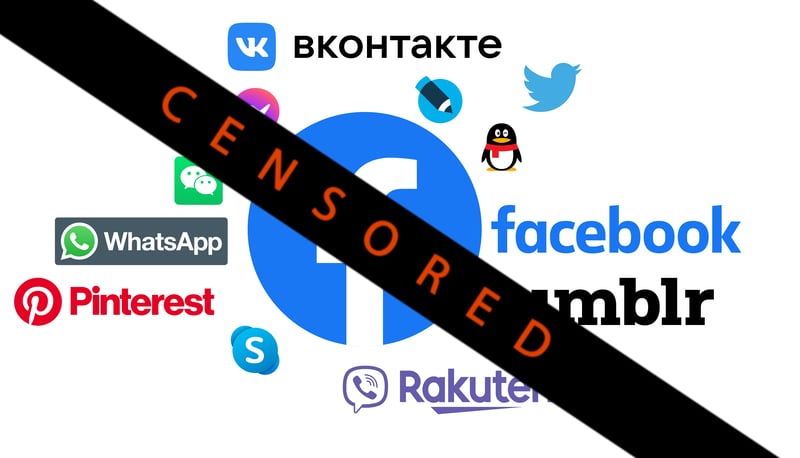
When Tim Walz, a candidate for U.S. Vice President says American’s don’t have the right to free speech, you know the world is in a bad place. Especially as the U.K. is arresting its citizens for social media posts and France is arresting CEOs of social media companies.
A dark curtain has fallen across Europe.
The recent events involving the arrest of Pavel Durov, CEO of Telegram, and the subsequent flight of Chris Pavlovski, CEO of Rumble, from Europe, underscore a troubling trend in the global battle over free speech, particularly in the digital age. These incidents are emblematic of the growing tension between governments and social media platforms that refuse to bow to demands for content censorship. This issue has profound implications for the future of free speech, both online and offline, and raises critical questions about the balance between regulation and freedom in democratic societies.
Pavel Durov’s arrest by French authorities has been reported as a consequence of Telegram’s refusal to comply with European Union (EU) demands for stricter content moderation. Telegram, known for its strong stance on privacy and free speech, has long been a thorn in the side of governments seeking to control the flow of information online. The French government has reportedly targeted Durov due to the platform’s alleged role in facilitating activities like drug trafficking, terrorism, and other illegal activities by failing to moderate content effectively.
Chris Pavlovski, CEO of Rumble, a platform that champions itself as a bastion of free speech, also found himself in the crosshairs of European authorities. Pavlovski recently announced his departure from Europe, citing threats from the French government and the arrest of Durov as red lines that had been crossed. Pavlovski’s decision to leave Europe and his public condemnation of the French government reflect his staunch opposition to what he perceives as an assault on the fundamental right to free expression.
These developments highlight a broader and more insidious trend where governments, particularly in Europe, are intensifying their efforts to regulate and control online speech. The European Union has been at the forefront of this movement, implementing stringent laws aimed at curbing hate speech, disinformation, and other forms of what it considers harmful content. While these laws are often justified on the grounds of protecting public order and safety, they have sparked significant controversy, especially among those who argue that they infringe on the basic right to free expression.
The arrest of Durov and the targeting of platforms like Rumble can be seen as part of a broader strategy by governments to exert greater control over digital platforms. This trend is particularly concerning because it sets a precedent for how states can leverage their power to silence voices that do not conform to the mainstream or government-approved narratives. For instance, by pressuring platforms to moderate content according to state directives, governments can indirectly dictate what information is accessible to the public, thereby limiting the diversity of viewpoints and stifling dissent.
The crackdown on platforms like Telegram and Rumble is bad for free speech for several reasons. Firstly, it undermines the principle that individuals should have the right to express their opinions freely, without fear of government retribution. Free speech is a cornerstone of democratic societies, and any efforts to curtail it threaten the very foundation of democracy itself.
Secondly, the actions taken by European governments could create a chilling effect, where platforms preemptively censor content to avoid legal repercussions. This self-censorship could lead to a homogenization of online discourse, where only the safest, most conformist viewpoints are allowed to thrive. Such an environment would be antithetical to the pluralistic nature of free societies, where the exchange of diverse ideas and opinions is essential for progress and innovation.
Moreover, these actions risk driving controversial speech underground, making it harder to monitor and address genuinely harmful content. When speech is pushed off mainstream platforms, it doesn’t disappear; instead, it often migrates to less visible corners of the internet, where it can become more radicalized and harder to counter.
The arrest of Pavel Durov and the departure of Chris Pavlovski from Europe are troubling signs of a growing trend towards the suppression of free speech under the guise of regulation. While there is a legitimate need to address harmful content online, the heavy-handed tactics being employed by some governments risk doing more harm than good. The challenge for democratic societies is to find a balance that protects both public safety and the fundamental right to free expression. Failing to do so could have long-lasting consequences for the freedom of speech worldwide.

